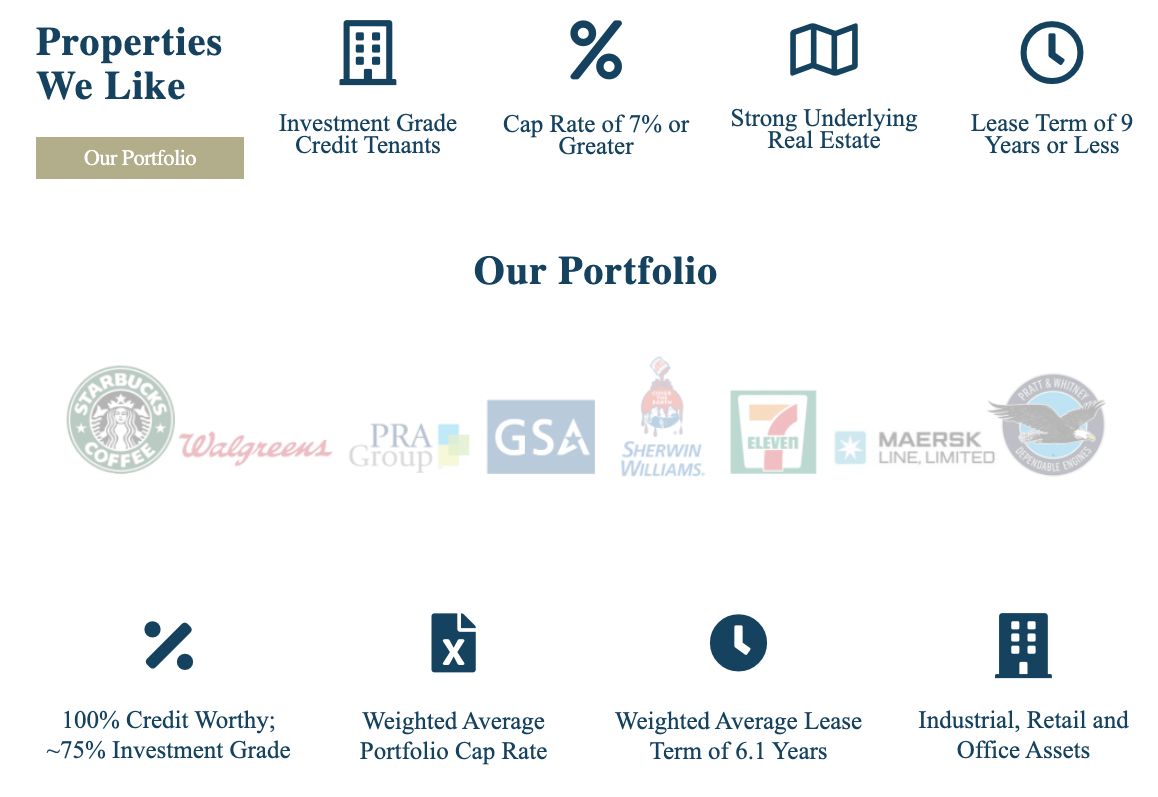Monthly Dividend Stock In Focus: Generation Income Properties
Real Estate Investment Trusts – or REITs – can be a fantastic source of yield, safety, and growth for dividend investors. For example, Generation Income Properties (GIPR) has an impressive 9.9% dividend yield.
Generation Income Properties also pays its dividends on a monthly basis, which is rare in a world where the vast majority of dividend stocks make quarterly payouts.
Generation Income Properties’ high dividend yield and monthly dividend payments make it an intriguing stock for dividend investors, even though the company IPO in 2019.
This article will analyze the investment prospects of Generation Income Properties.
Business Overview
Generation Income Properties, founded in 2015, acquires and manages a diversified portfolio of primarily investment-grade, single-tenant retail, industrial, and office properties with a generational outlook in mind. The company focuses on the underlying real estate, the credit of the tenant, and opportunistic lease terms of less than ten years remaining.
The company looks for higher density real estate markets which will help lead to higher real estate values. Also, by purchasing shorter lease terms for investment-grade credit tenant assets, GIP can provide above-market returns.

Source: Gipreit.com
On March 17, 2022, the company reported fourth-quarter and full-year results for Fiscal Year (FY)2021. Revenue for the fourth quarter was up to $0.9 million compared to $0.89 million in the fourth quarter of 2020, or 5.8% year-over-year. For the year, revenue is up 10.8% compared to the entire year of 2020. In 2020, total revenue was $3.5 million, and in 2021 total revenue was $3.9 million. The increase in revenue was driven by the acquisition of properties during the year.
Expenses for the company increased considerably for the quarter and the year. In the fourth quarter, total expenses were $1.7 million compared to $1.2 million in the fourth quarter of 2020. This represents an increase of 35%. For the whole year, total expenses were $5.5 million compared to $4.9 million in 2020, increasing 14%. The biggest driver of the increased expenses was General, administrative and organizational costs. This was due to changes in operating expenses driven primarily by an increase in stock-based compensation, salary expense, professional fees, and insurance.
Thus, for the quarter, the company generated a net loss of $(849.3) thousand, or $(1.34) per diluted share, and generated a core Funds From Operation (FFO) of $(232.2) thousand, or $(0.22) per diluted share. Core Adjusted Funds From Operation (AFFO) of $(263.5) thousand, or $(0.25) per diluted share. This is compared unfavorably to the fourth quarter of 2020.
For the year, the company generated a net loss of $(1.2) million, or $(1.16) per diluted share, and generated a core FFO of $307.2 thousand, or $0.29 per diluted share. Thus, core AFFO of $160.0 thousand, or $0.15 per diluted share, compared favorably to 2020.
During the quarter, the company invested $4.7 million in 1 property with a yield of 7.5%. And for the year, the company invested $8.3 million in 3 properties and acquired an interest in a Tenant in Common property for $1.7 million. These investments had a blended acquisition yield of approximately 7.3%.
For the year, the company portfolio is 100% leased, occupied, and rent-paying and has remained so from its inception, even throughout the pandemic. The average annualized base rent (ABR) per square foot at the end of the quarter was $28.05 or $17.12 on a weighted average basis.
Growth Prospects
Generation Income Properties had impressive growth before it came public in 2021. Since the end of 2021, the trust’s first year of operations as a public company, it has compounded adjusted funds from operations per share at a rate of just ~438% per year.
The trust has grown steadily in terms of portfolio size and revenue, but relatively high operating costs and dilution from share issuances have slowed returns for shareholders. With higher costs and the dilution of shares, this combination will hurt future FFO growth for the company.
Growth drivers for the company will come from its continuation of acquisitions, as it acquired four properties last year. Also, the increase in rent from its current tenants. However, the company must take control of its expenses as they ballooned the previous year.
Dividend Analysis
For all of its growth concerns, the Generation Income Properties dividend appears to be unsafe right now. The expected dividend payout ratio for 2022 is over 290%. We expect the company to make an FFO of $0.22 per share for FY2022. The company is currently paying a monthly dividend of $0.054 per share for a total yearly dividend payout of $0.648 per share. Thus, the $0.22 FFO per share that we expect the company to make this year is not enough to cover the dividend.
This makes the current attractive dividend yield of 9.9% unsafe for income investors. Also, investors should not expect the company to be a dividend growth stock, as the distribution payout is exceptionally high. With the payout ratio as high as it is and FFO-per-share growth muted, investors should not expect the payout to be raised anytime soon. They should expect a dividend cut to come soon.
However, the company balance sheet is also concerning. The company has a low-interest coverage ratio of 0.5, which is low compared to other REITs in the same sectors. The debt to equity ratio od high at 2.2.
Final Thoughts
Generation Income Properties is a high dividend stock, and its monthly dividend payments make it attractive to income investors. However, several factors make us cautious about the company today, such as its lack of diversification within its property portfolio and its high level of debt.
With a risky dividend, we view the stock as unattractive for risk-averse income investors. Investors looking for a REIT that pays monthly dividends should look at other REITs with a better choice with more favorable growth prospects, higher yields, and safer dividends.



